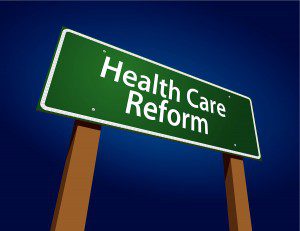 The first meeting of a Senate select committee on the federal Affordable Care Act turned raucous Monday, with a group of speakers saying the state should not carry out the law — and jeering Senate Minority Leader Chris Smith after he defended the role of the federal government.
The first meeting of a Senate select committee on the federal Affordable Care Act turned raucous Monday, with a group of speakers saying the state should not carry out the law — and jeering Senate Minority Leader Chris Smith after he defended the role of the federal government.
Members of the group, including “tea-party” activists, said the law known as “Obamacare” is an unconstitutional overreach by Washington. The U.S. Supreme Court upheld most of the law in June, which has led to state lawmakers considering whether to carry out portions such as an expansion of Medicaid eligibility and creation of a health-insurance exchange.
KrisAnne Hall, a north Florida lawyer who was a chief spokeswoman for the group, described the federal law as a “trainwreck.”
“You have to stand now in defense of the constitution, in honor of your oath,” she told members of the Senate Select Committee on the Patient Protection and Affordable Care Act.
But a short time later, Smith, a Fort Lauderdale Democrat, offered a different view of the federal government’s role, saying, “It’s hard to sit here and be silent and listen to some of this.”
Smith said, for example, the federal government had to play a large role in the past on issues such as integrating schools. Also, he pointed to part of the U.S. Constitution that originally treated black people as less than white people for representation purposes.
“The federal government had to step in because our constitution is an imperfect document,” Smith said, drawing boos from the health-law opponents. “If it was perfect, you would not have amendments to it.”
Committee Chairman Joe Negron, R-Stuart, tried to stem the booing.
“I would ask everyone, show courteousness and decorum,” Negron said.
Senate President Don Gaetz, R-Niceville, formed the select committee to make recommendations about issues confronting the state, as major pieces of the federal health law get ready to take effect in January 2014. Florida Republican leaders fought the law in the courts and politically for more than two years, but now are grappling with the realization that the Affordable Care Act likely will take full effect after the Supreme Court decision and President Obama’s re-election in November.
Negron said he is not sure when the committee will make recommendations and that Monday’s meeting was largely about starting to gather information. He said his priorities include protecting individual choice in health-care matters, limiting regulations on businesses that are subject to the law and promoting competition and value as Floridians make decisions about buying coverage.
One important piece of the law — increasing payments to primary-care physicians who treat Medicaid patients — appears likely to take effect Jan. 1. The federal government would pay the full cost of the increase in 2013 and 2014, though Florida would have to pick up part of the tab in later years if it decides to keep the increase in place.
The health law requires the physician-payment increase, and Negron said lawmakers are looking at how the increase can take effect Jan. 1 without the Legislature having to act on it. The increase would reimburse physicians at rates paid in the Medicare program, which are higher than the rates paid by Florida Medicaid.
But the more-contentious issues center on whether to expand Medicaid eligibility to include more Floridians and whether to set up a state health-insurance exchange, a type of online marketplace that federal officials see as an important part of trying to help people get coverage. If Florida does not set up an exchange, the Obama administration will do it for the state — though Florida also could enter into a partnership with the federal government.
Another issue facing lawmakers is whether the state will offer health coverage to employees who work in what are considered temporary positions. Some workers stay in the jobs — known as “other personal services” jobs — for long periods of time. Under the law, the state could be forced to pay financial penalties if it doesn’t offer coverage to them.
Members of the committee listened to the staff presentations on such issues Monday and gave little indication about how they want to move forward. But Sen. Eleanor Sobel, D-Hollywood, said Florida has one of the highest rates of uninsured people in the country, which she said needs to be “reckoned with.”
“We have to abide by the law and do what’s best for the people of Florida in terms of their health care,” Sobel said.
By JIM SAUNDERS
THE NEWS SERVICE OF FLORIDA


